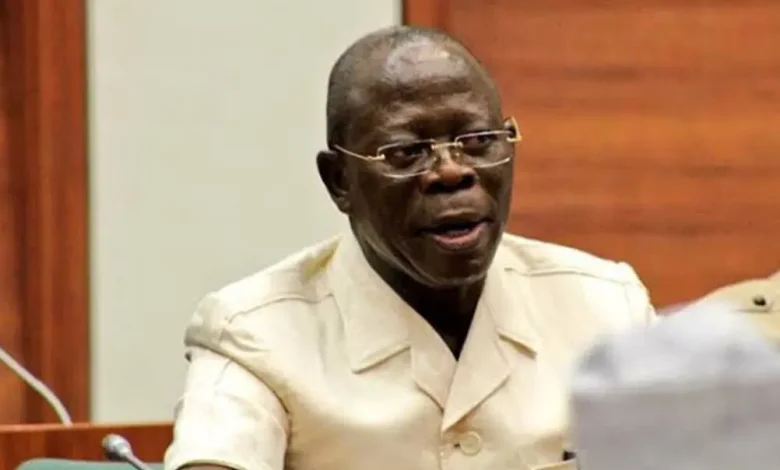Minimum wage: Workers are struggling despite pay increases – Oshiomhole

Former Edo State Governor Comrade Adams Oshiomhole has criticized wage exploitation in Nigeria, emphasizing that low pay is harming both national security and economic productivity.
He shared these views during the Distinguished Personality Lecture organized by the National Institute for Security Studies (NISS) on Wednesday, October 30, in Abuja.
Oshiomhole explained that inadequate wages create a cycle of economic hardship, leaving workers vulnerable to manipulation and radicalization. He noted that even with the recent increase in the minimum wage approved by the Federal Government, many Nigerian workers are now worse off than before.
The lecture, titled “National Minimum Wage: Reward System and Productivity in Africa,” was part of the Executive Intelligence Management Course, aimed at understanding the connection between wages, security, and productivity.
According to Oshiomhole, fair wages are crucial for boosting workers’ motivation and improving overall economic growth. He pointed out that workers often face unstable salaries and job insecurity, as employers can easily hire and fire them.
He highlighted that, despite paying union dues, workers frequently receive little support from trade unions, leading to doubts about their effectiveness. Oshiomhole also mentioned that historically, the right to organize has been suppressed, limiting workers’ ability to negotiate collectively. In response to poor working conditions, some have resorted to industrial sabotage as a form of protest.
He emphasized that collective bargaining and the right to strike are vital tools for negotiating fair wages and better working conditions. When these rights are restricted, workers may resort to “work to rule.”
Oshiomhole noted significant disparities between minimum and maximum wages across different sectors, which often leads to dissatisfaction. He pointed out that while the wealthy may benefit from state protection, the poor continue to struggle.
“The minimum wage is intended to protect vulnerable workers, but it is often not enforced. Setting minimum wages too high can lead to job losses, while setting them too low can result in exploitation. Inflation severely impacts purchasing power, making it hard for workers to maintain a decent standard of living. Many workers are poorer now than in the past, even with nominal wage increases,” he said.





